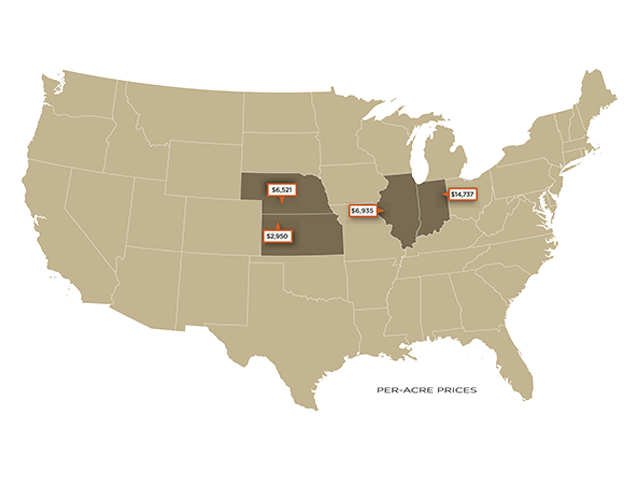Stocks Inch Up Early Friday
NEW YORK (AP) -- U.S. stocks are modestly higher Friday morning and indexes overseas are slightly lower as a steep plunge in global stock markets comes to at least a temporary halt.
Investors bought utilities, household goods makers and other stocks they see as relatively safe, and Nike surged after a strong quarterly report.
Markets have suffered wide losses over the last week. The major U.S. indexes have fallen 10 percent this month, and without a substantial gain over the final days of trading, they are headed for their single worst month since February 2009. That's before the current bull market began.
Investors around the world have grown increasingly pessimistic about the global economy over the next few years. It's widely expected to slow down, but traders are concerned the cooling might be worse than they previously believed and that the U.S. could eventually tip into a recession.
The Federal Reserve is projecting that the U.S. economy will grow 3 percent this year, the fastest since 2005, and about 2.3 percent next year, and forecasts two years of further increases after that. But as interest rates rise and regions the U.S. does a lot of business with, like Europe and China, also slow down, those estimates might be harder to reach.
Trade tensions between the U.S. and China, the largest and next-largest economies in the world, are not the only reason for the expected slowdown in economic growth and corporate profits, but they are adding even more uncertainty to a picture that already looks cloudy.
P[L1] D[0x0] M[300x250] OOP[F] ADUNIT[] T[]
The S&P 500 index picked up 32 points, or 1.3 percent, to 2,500 at 10:19 a.m. Eastern time. The index, which is widely used by funds that track the U.S. market, has fallen about 16 percent from its high in September.
The Dow Jones Industrial Average rose 360 points, or 1.6 percent, to 23,214. The Nasdaq added 50 points, or 0.8 percent, to 6,581. The Russell 2000 index of smaller-company stocks edged up 8 points, or 0.6 percent, to 1,333.
Athletic gear maker Nike jumped 8 percent to $72.91 after a better-than-expected third-quarter report. That helped shoe retailer Foot Locker, which gained 4.8 percent to $50.20.
Household goods companies climbed. Pepsi rose 2.7 percent to $113.15 and Procter & Gamble added 1.5 percent to $92.36. Also rising were utilities and health care companies. Utility company Dominion Energy jumped 2 percent to $76.34 and drugmaker AbbVie rose 2.2 percent to 87.27.
As of Friday morning, utilities and health care companies were the only two sectors in the S&P 500 that are higher than they were on Jan. 1. The S&P 500 itself is down about 7 percent in 2018. After accounting for dividends, it's on track for its first annual loss since 2008, the year the global financial crisis roiled markets.
Defense contractors fell after President Donald Trump said he's withdrawing U.S. soldiers from Syria in an unexpected move. Media reports say the administration might also pull large numbers of soldiers out of Afghanistan. Northrop Grumman fell 2.7 percent to $236.97 and Lockheed Martin fell 2.7 percent to $258.13.
The market's big losses this month are an outlier because December is generally the strongest time of the year for U.S. stocks. Traders often talk about a "Santa rally" that adds to the year's gains as positions are closed out and people adjust their portfolios in anticipation of the year to come. Barring huge gains, this will be the worst December for the U.S. market since the 1930s.
Germany's DAX slipped 0.2 percent while France's CAC 40 fell 0.5 percent. The FTSE 100 in Britain dipped 0.7 percent. All three have suffered steep losses this year. The DAX is down 22 percent from its record high in January, while the CAC 40 has fallen 17 percent from its peak in May and the FTSE 100 has lost about 15 percent over that time.
Chinese markets have been in the front line of worries this year amid trade tensions with the U.S. The Hang Seng index in Hong Kong rose 0.5 percent Friday, but is down 22 percent since late January. The Japanese Nikkei declined 1.1 percent and it's down almost 17 percent since early October. South Korea's Kospi inched up 0.1 percent.
Stocks are not the only financial assets recording momentous changes this month. Oil prices have declined 40 percent from recent highs amid concerns over a glut in the market. Worries over the outlook for oil demand, given the expected slowdown in the global economy, have made things worse.
Benchmark U.S. crude dipped 0.2 percent to $45.77 a barrel in New York. The international standard, Brent crude, declined 2 percent, to $53.25 a barrel in London.
Bond prices edged higher. The yield on the 10-year Treasury note fell to 2.78 percent from 2.79 percent.
The U.S. dollar also ticked higher after two days of sharp losses brought on by fears about the economy and slower increases in interest rates. The dollar fell to 111.02 yen from 111.11 yen. The euro fell back to $1.1406 from $1.1469 and the British pound slipped to $1.2646 from $1.2671.
(BE)



